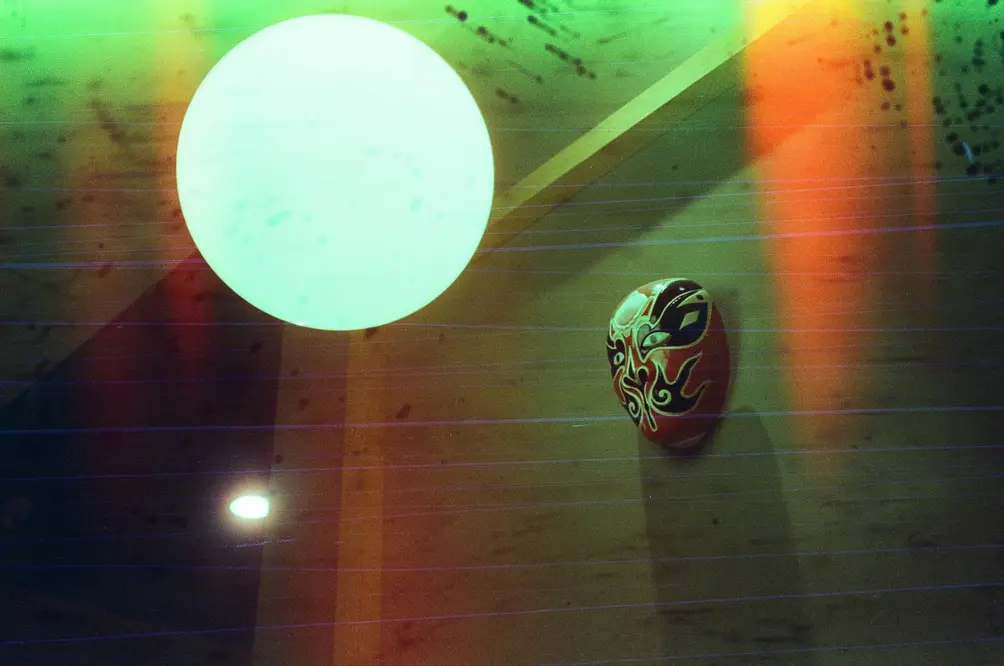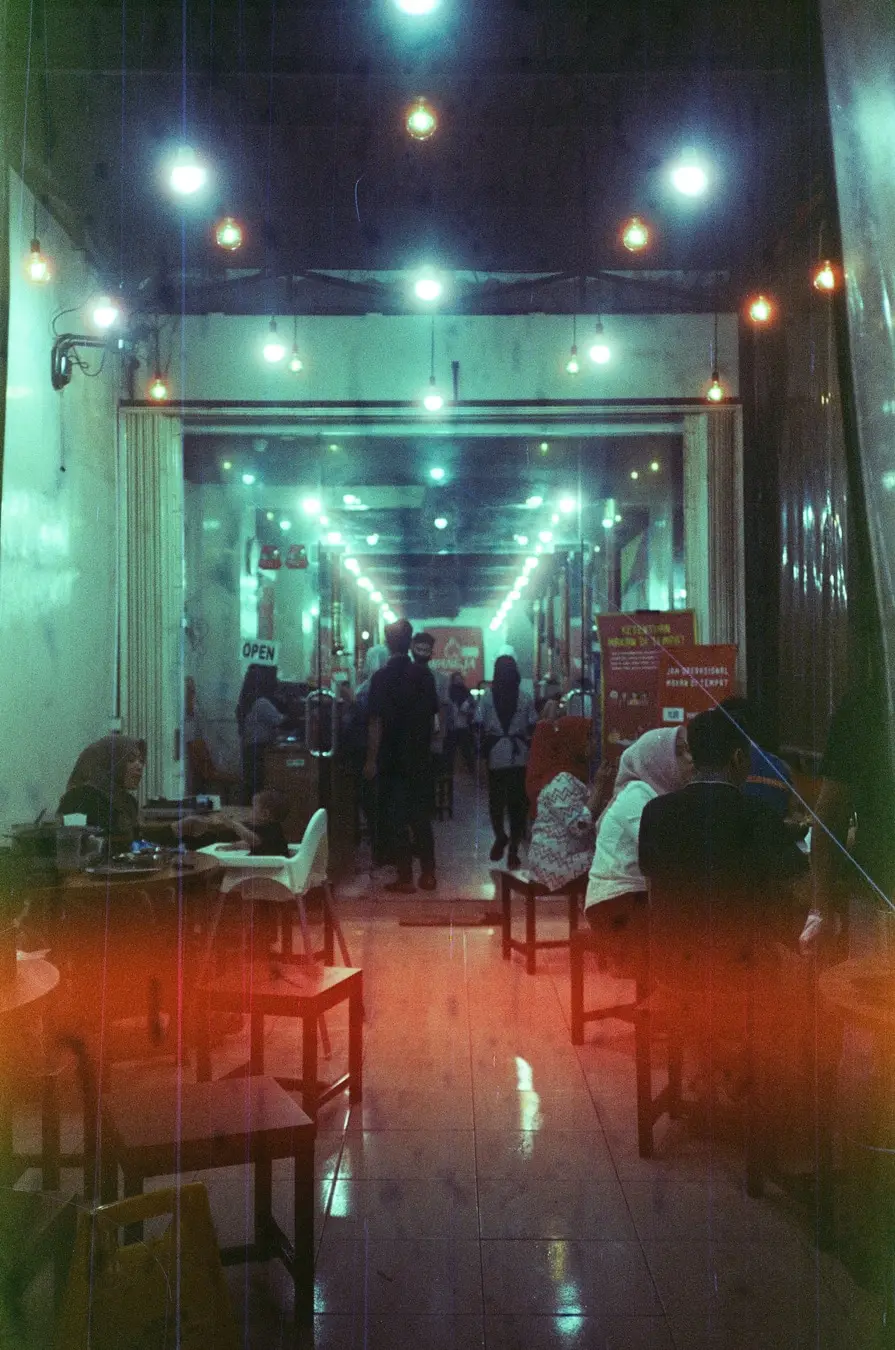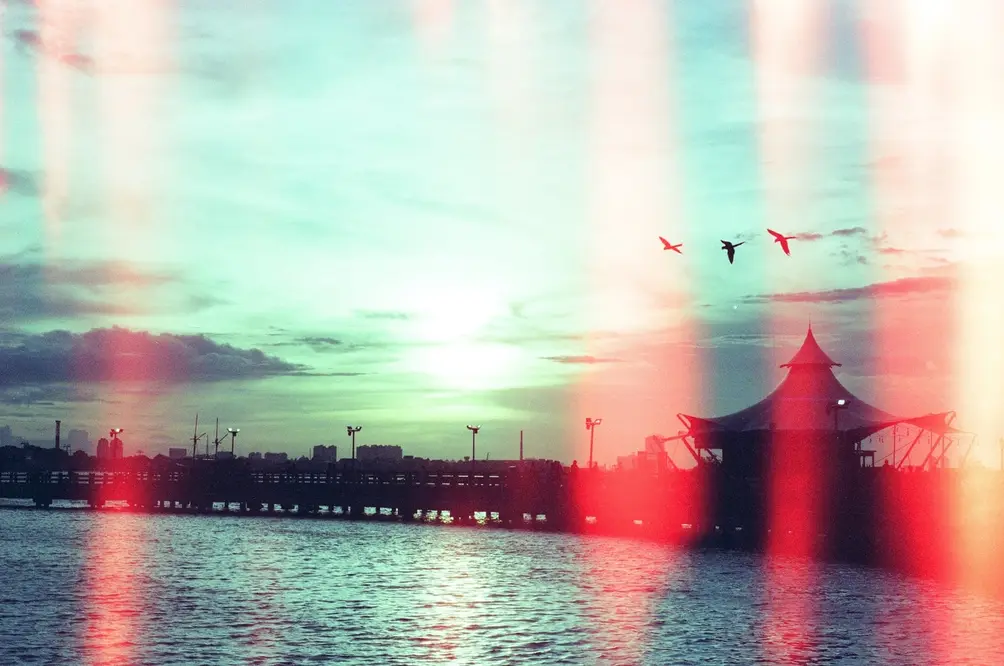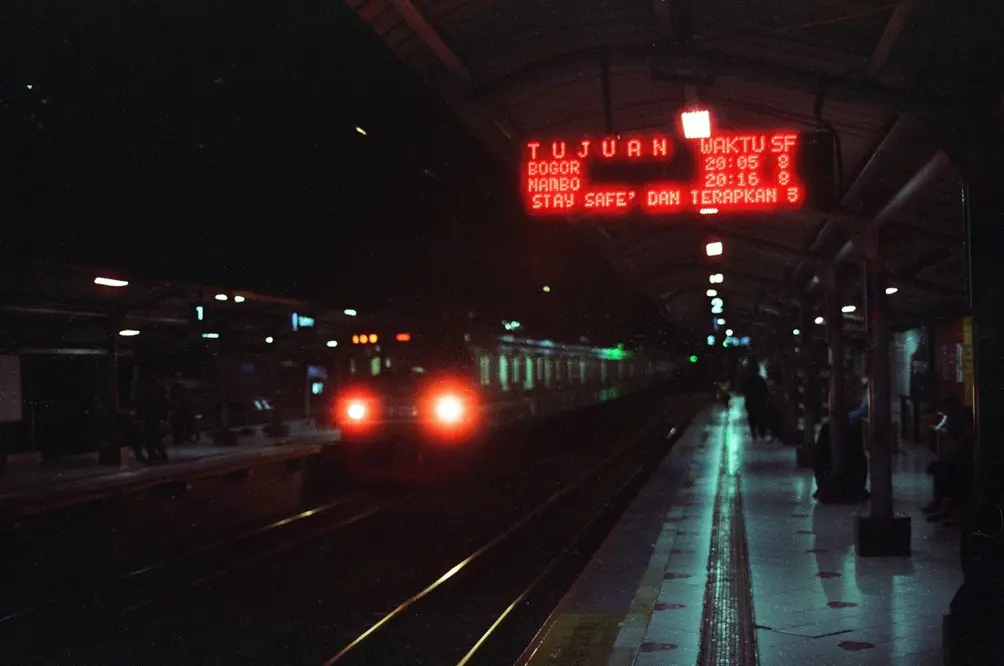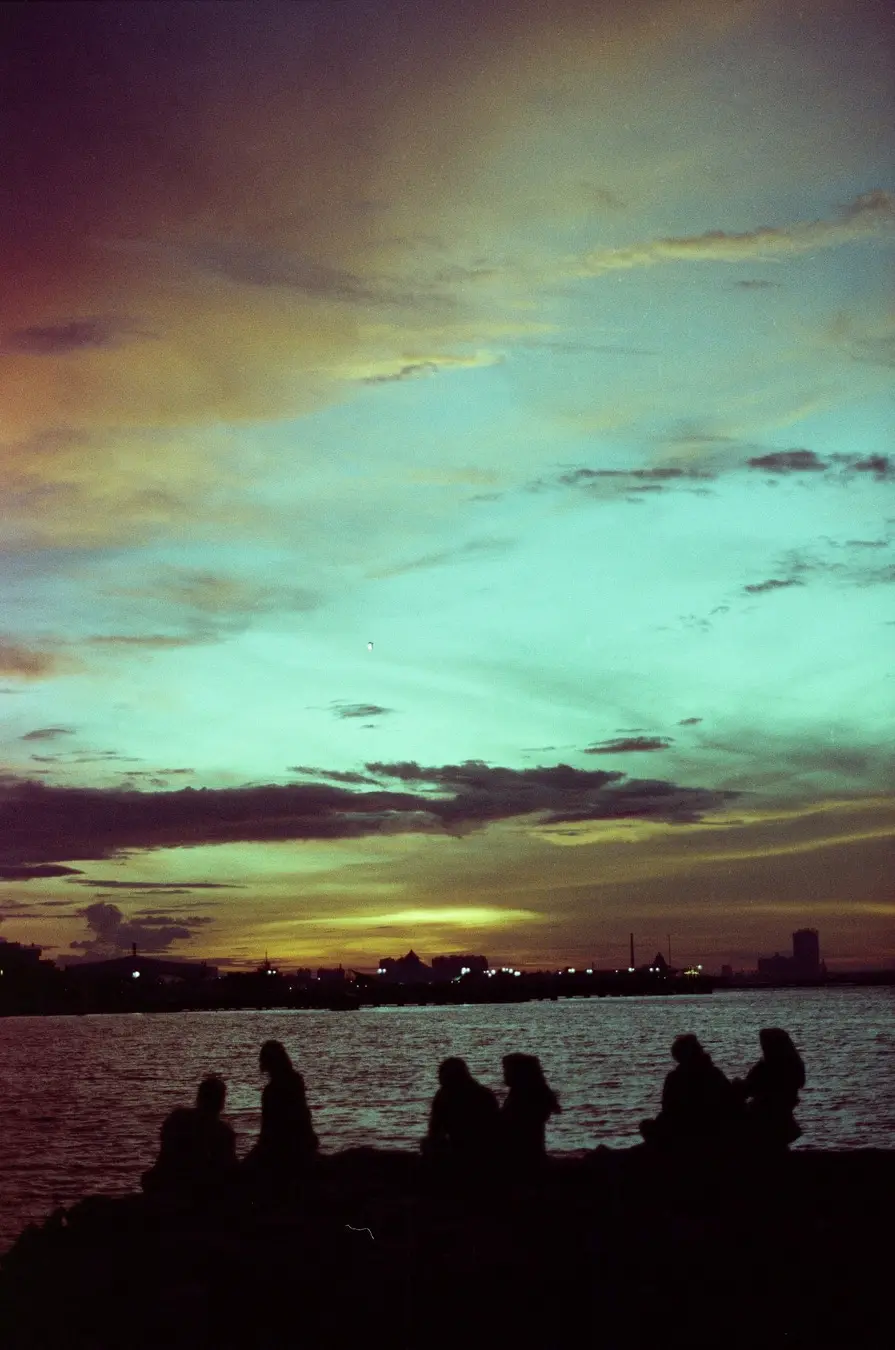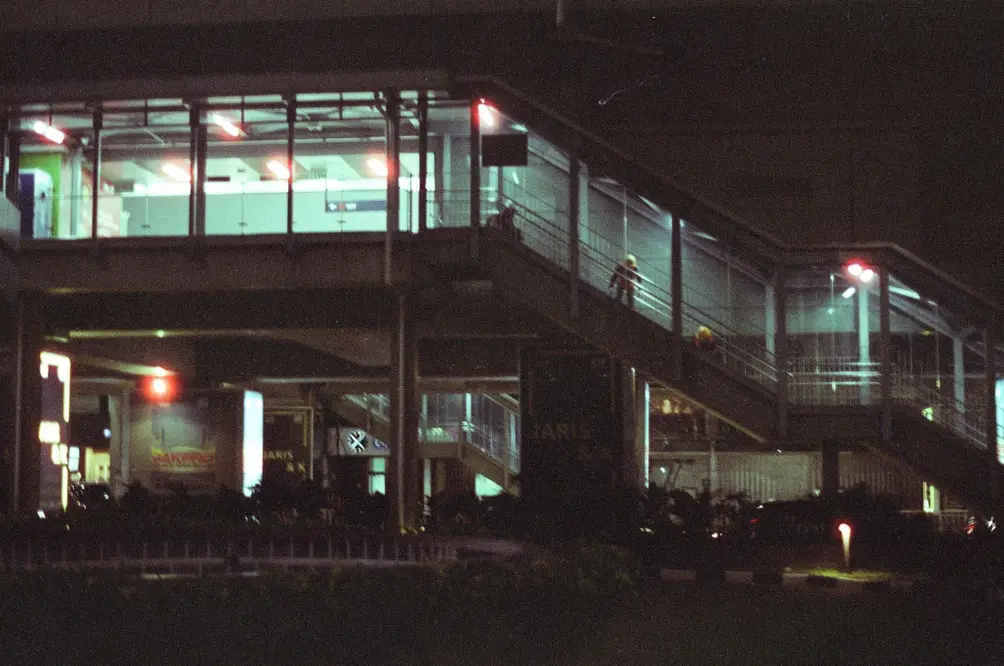Intentional camera movement during a night exposure turns city lights into abstract ribbons of color—red and green streaks wave horizontally across the frame, punctuated by brighter white smears that suggest vehicle headlights or streetlamps. In the lower portion of the frame, a vehicle's form is barely discernible through the motion blur, grounding the abstraction with a hint of reality.
This experimental approach works particularly well on film. The Olympus XA-1's simple fixed lens and the Cartenz 200 film's grain structure combine to create an almost painterly effect. During the long exposure required in low light, moving the camera transforms point light sources into continuous trails, each light leaving its trace across the film emulsion. The result feels more like a long-exposure painting than a photograph.
Film embraces happy accidents. What might be dismissed as "camera shake" in a technical sense becomes intentional artistic expression, where the medium's analog nature allows light to accumulate and blend in ways that feel organic and expressive.

